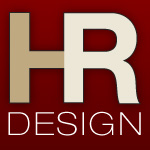HR Design teams submit revised recommendations
Four work teams from the campus’ Human Resources Design project have turned in revised recommendations that are responsive to feedback received during a lengthy engagement process.

The set of recommendations from the four phase 2 teams – Employee Development, Performance Management, Transition and Succession and Workplace Flexibility – are the final products from the 11 teams that began work on the project late last year and early this year.
Revised recommendations from the seven phase 1 work teams were posted May 23, and can be viewed here. The work teams consisted of more than 150 employees from every sector of the campus, including academic and classified staff, faculty and students.
At a glance, the revised recommendations include:
- The Employee Development work team’s recommendations for greater investment in employee development, and greater coordination of employee development activities across campus.
- A proposal from the Performance Management work team recommends that all academic staff and classified employees – including managers and supervisors — receive regular performance evaluations. The primary aim of these evaluations is to foster growth among employees and enhance performance. All managers and supervisors, including faculty, will conduct evaluations of the staff they supervise.
- The Transition and Succession work team’s recommendations for providing consistent policies across employee categories for appointments and layoffs.
- The Workplace Flexibility work team’s recommendations centered on current university HR practices regarding scheduling, telecommuting and working arrangements.
To find the full revised recommendations and for more information about the project, click here.
Key to the project has been a campuswide engagement effort that Interim Chancellor David Ward, Provost Paul M. Deluca Jr. and Vice Chancellor for Administration Darrell Bazzell have called “perhaps the most extensive effort ever undertaken on our campus to engage in a frank and open discussion about our work environment.”
Through May, there have been 54 total engagement events related to the project, including campus-wide engagement sessions, smaller sessions with campus employee groups, web chats, surveys and polls. Those sessions produced more than 7,700 contacts with campus employees.
The events generated feedback that informed the work teams. In some cases, the teams adjusted their recommendations based on what they heard.
Next steps for the project this summer will include synthesis and analysis of the work team recommendations by project leaders. The project leaders will continue to collaborate with campus governance groups and stakeholders. A draft proposal is expected to emerge for campus review this fall.
A final proposal will then be submitted for approval to the UW System Board of Regents and, later, the state Legislature’s Joint Committee on Employment Relations.
Tags: employee news




